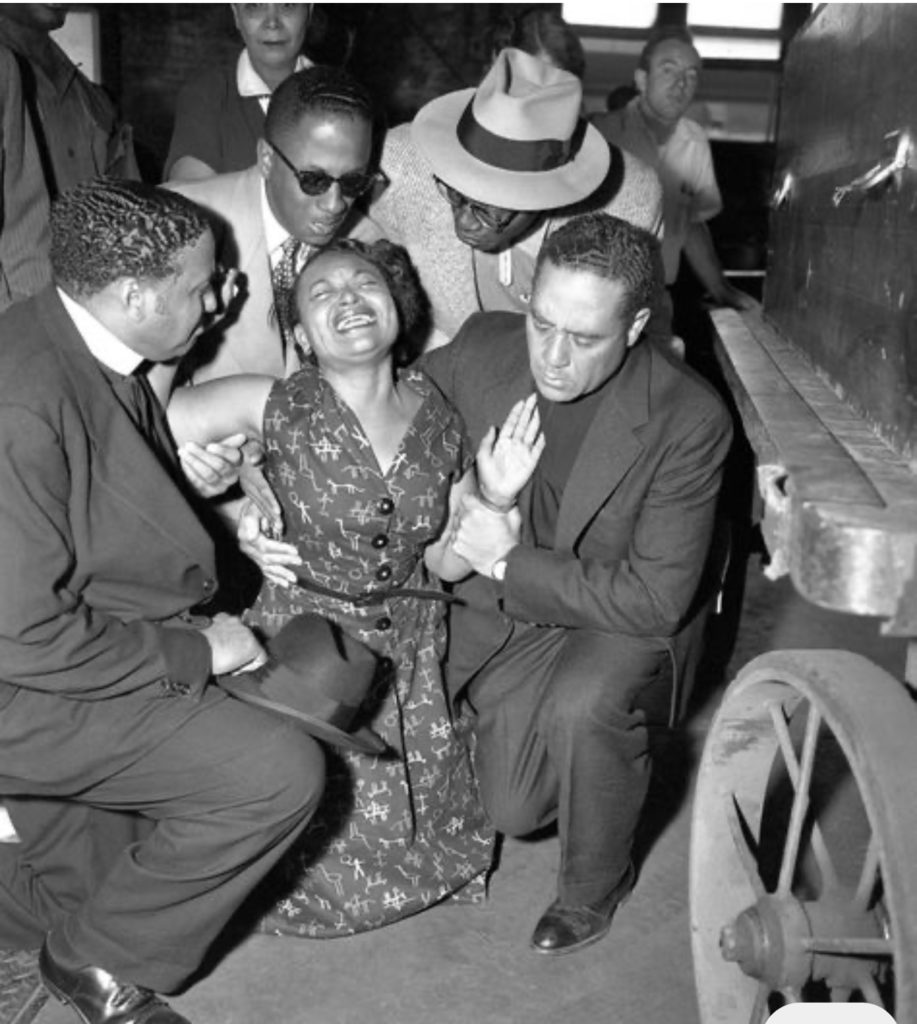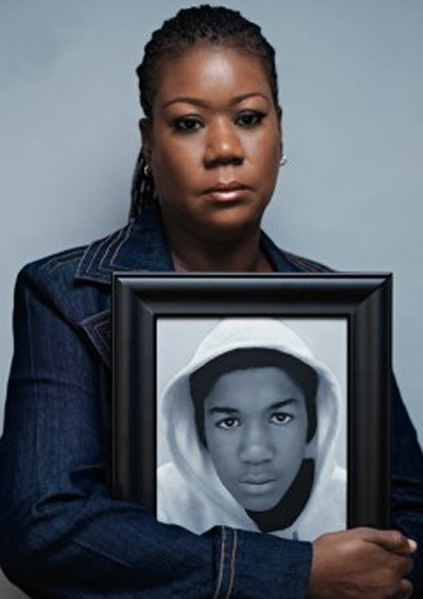By Ava Zwartjes, G12
On the night of February 26, 2012, seventeen-year-old Trayvon Martin went to the convenience store to buy a pack of Skittles. According to George Zimmerman, a man driving in the neighborhood, Trayvon looked like he was “up to no good, or… on drugs or something.” On the night of February 26, 2012, seventeen-year-old Trayvon Martin was shot and killed.
On August 24, 1955, fourteen-year-old Emmett Till was hanging out with his friends at a candy store. According to Carolyn Bryant, the woman working behind the cash register, Emmett “put his left hand on my waist, and he put his other hand over on the other side.” Seven days later, Emmett Till’s body was found in a river, “so disfigured that Mose Wright [Emmett’s uncle] could only identify it by an initialled ring.” Carolyn Bryant’s husband and his brother had murdered Emmett and disposed of his body in a river with a cotton-gin fan. Carolyn Bryant later admitted that she had lied in her court testimony about the events that took place on that day, August 24, 1955.
What are the connections between these stories? Hint: it’s not just both victims being Black. It’s the fact that every perpetrator was acquitted of all charges against them. None of them served time in prison for robbing someone of their life. What’s even more disheartening is that these are simply two of thousands of similar illustrations of injustice that can be found hidden away, collecting dust in a filing cabinet somewhere in America.
This is why Black Lives Matter.


Each instance occurred 57 years apart, yet the social context they happened within remains unchanged. Racial inequality and the injustice it fosters exists today as it did yesterday and the thousands of yesterday’s prior, but it may have just revealed itself to you now. In these past months, an online social uprising has occurred that you have most likely been witness to; through the exposure social media brings, we are only now all aware of the cruel reality of the systemic oppression America has ingrained in its culture.
Incidentally, America is the same as ever, only now we have more media platforms, and as a result, more voices that are being called to rise to the challenge that has plagued us since before the invention of the telephone. Technology has pulled you in and made you a part of the story, unlike your grandparents who read the morning paper and threw it in the bin, or never even received the paper in the first place. You have stood beside those who have been wronged and watched their final moments; but you were not simply an onlooker. Your view has deputized you as either complicit in the crime or an activist called to take part in vanquishing the plague of social injustice.
Though you may have noticed that your social media feed has recently become less frequented by posts regarding this movement, the truth which lies beneath the surface is that all of this does not come down simply to police brutality, and the problem itself isn’t going to go away in a few weeks. We must keep fighting, no matter how tired we are. Racism itself is a broad term, a complex web with multiple scopes, and for the hundreds of years worth of damage to be repaired, everyone must be not only involved but involved for the long run. There is no time to wait; there is no time to take a break; most of the world has been silent for centuries.
Through videos captured by the shaky hand of a teenager, or the concerned onlooker, this situation glares at us and begs us to take action. Our current circumstance commands an end to willful ignorance, performative activism, and privilege in all forms to be repurposed into active engagement with our ability to make change. What was once a metaphor has become a reality — at your fingertips you have access to information, to education, to freedom. It’s important that we all now understand the extremity of our global surroundings and see how necessary it is that all of us participate in the actualization of change. Racism is not just an ‘America thing’; it’s an everywhere thing, and it’s melded into the smallest of our everyday behaviors, actions, and thoughts.
So I say this urgently: it’s up to us to recognize the truths laid before us and bring them to the surface. There is no time left to wait. We are the ones who need to speak their names; to speak the truth; to speak for those who can’t; for racism is too deep of a root to excuse any single person from pulling it.
If we don’t, we are complicit accessories to the transgression that is racial injustice.
Emmett Till
Eric Garner
John Crawford III
David McAtee
Ahmaud Arbery
George Floyd
Breonna Taylor
Michael Brown
Ezell Ford
Dante Parker
Michelle Cusseaux
Laquan Mcdonald
Tanisha Anderson
Tamir Rice
Sandra Bland
Freddie Gray
Trayvon Martin
Alton Sterling
Mike Brown
Oscar Grant
Philando Castile
Tyree Crawford
Bettie Jones
William Green
Corey Jones
Sean Bell
Mya Hall
Breonna Taylor
Jamar Clark
Troy Robinson
Charleena Lyles
Ezell Ford
Elijah McClain
Aaron Bailey
David Joseph
Joseph Mann
Tony Robinson
Walter Scott
Tony McDade
La’Vante Biggs
Willie Tillman
Peter Gaines
Anthony Ashford
Samuel Dubose
![]()


Insightful, well researched, & thoughtfully written.